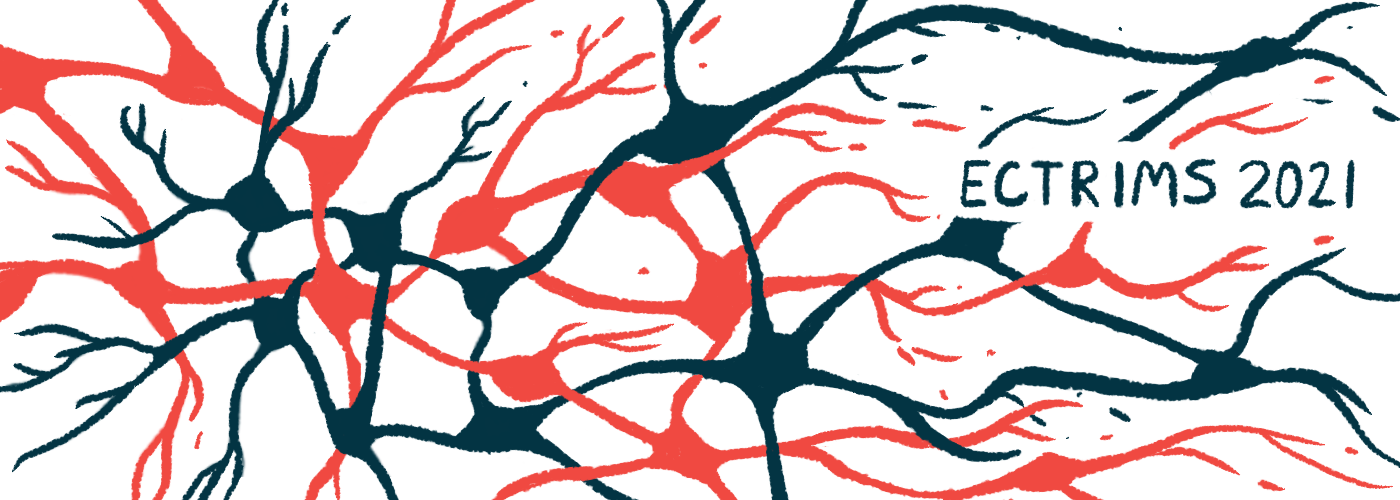#ECTRIMS2021 – CD20-positive T-cells May Be Early Drivers of MS
Written by |

Editor’s note: The Multiple Sclerosis News Today team is providing in-depth coverage of the virtual 37th Congress of the European Committee for Treatment and Research in Multiple Sclerosis (ECTRIMS), Oct. 13–15. Go here to see the latest stories from the conference.
Certain types of T-cells that express a protein marker called CD20 may be early drivers of disease activity in multiple sclerosis (MS), new data shows.
These research results were revealed last week at the 37th Congress of the European Committee for Treatment and Research in Multiple Sclerosis (ECTRIMS), in an oral presentation titled “Cellular immune profiling pre- and post-aCD20 therapy points to differential effects on CD4+ and CD8+ T cells and implicates CD20-expressing CD8+ T cells in MS disease activity.”
MS is driven by inflammation in the nervous system, caused by the excess activity of certain immune cells. However, exactly which types of immune cells contribute to MS progression is not well understood.
Anti-CD20 treatments are a class of MS disease-modifying therapies — designed to reduce the activity and progression of MS — that work by killing immune cells that express the CD20 protein marker. This marker is mainly expressed by B-cells, and it is presumed that most of the beneficial effects of anti-CD20 treatments are due to their B-cell-killing activity.
However, CD20 also is expressed by a small portion of T-cells, another kind of immune cell, and the impact of anti-CD20 therapies on T-cells is unclear.
Currently, two anti-CD20 therapies for MS are approved in the U.S. for relapsing forms of MS: Ocrevus (ocrelizumab) and Kesimpta (ofatumumab). Ocrevus also is approved for primary progressive disease (PPMS).
While these therapies are considered highly effective, a small proportion of patients who start on them will have evidence of disease activity in the first few months of treatment — but not afterward — for reasons that are unknown.
Now, a team led by researchers at the University of Pennsylvania (Penn) conducted detailed analyses of the immune cells found in the blood of MS patients before and after starting on Ocrevus for the first time.
The cells of two patient groups were analyzed: a set of 23 individuals with either relapsing-remitting (RRMS) or PPMS who had not received prior therapy, and another group of 35 patients with RRMS.
Results from both sets of patients were generally similar, with the anti-CD20 therapy leading to a sharp decrease in numbers of B-cells, as expected.
The treatment also had marked effects on T-cells, of which there are two main types. One, known as CD8 T-cells, is a type of cell that is able to kill other cells — for example, cancer cells or cells infected with a virus. By contrast, CD4 T-cells, the other type, mainly act by helping to coordinate the activity of other components of the immune system, including B-cells.
By analyzing specific markers on and in the cells, the researchers deduced that both the CD4 and the CD8 T-cells removed by anti-CD20 therapies were generally pro-inflammatory.
Furthermore, the removed cells showed evidence of being able to get into the central nervous system or CNS, comprised of the brain and spinal cord. The body has several systems in place that normally tightly control which immune cells are able to get into the CNS.
Additional analyses showed that most CD8 T-cells that were removed by Ocrevus treatment expressed CD20; in other words, it’s likely that the treatment was directly killing these cells. By contrast, CD4 depletion was not fully explained by the direct effects of targeting CD20.
This result “indicates anti-CD20 therapy impacted B-cell [and] CD4 T-cell interactions,” according to Koji Shinoda, MD, PhD, a professor of neurology at Penn’s Perelman School of Medicine, who presented the research.
The team then looked for immunological features that were associated with disease activity in the few patients with early activity after starting treatment. While no noteworthy findings for CD4 T-cells were noted, the team found that low levels of CD20-expressing CD8 cells in the blood — potentially indicating the migration of these cells into the CNS — was associated with a higher risk of early disease activity.
Notably, this association was present for baseline values — that is, before patients had received even one dose of anti-CD20 therapy — and early after treatment.
This “implicates CD20-[expressing] CD8 cells leaving the circulation as an early step in the cellular immunology of relapsing MS disease biology,” Shinoda said.
In line with the other finding that CD8 T-cells depleted by anti-CD20 therapy tend to be better equipped to get into the CNS, the researchers think that these CD20-expressing CD8 T-cells are disappearing from the blood because they are going into the brain — where they cause disease activity soon thereafter.
Since anti-CD20 therapies effectively kill cells in the blood, but not the CNS, this may explain why some patients experience disease activity soon after starting on treatment, but not after long-term treatment: the disease-causing cells are already in the brain, but additional disease-driving cells are killed in the blood by the therapy before they are able to get to the brain.
“Our study provides novel insights into both the mode of action of aCD20 and mechanisms underlying MS relapse biology,” the researchers wrote in the study abstract.
“The strong inverse correlation with disease activity suggests that CD20-expressing CD8+ T cells leaving the circulation (possibly to the CNS) participate in early … events involved in MS relapse development,” they concluded.




